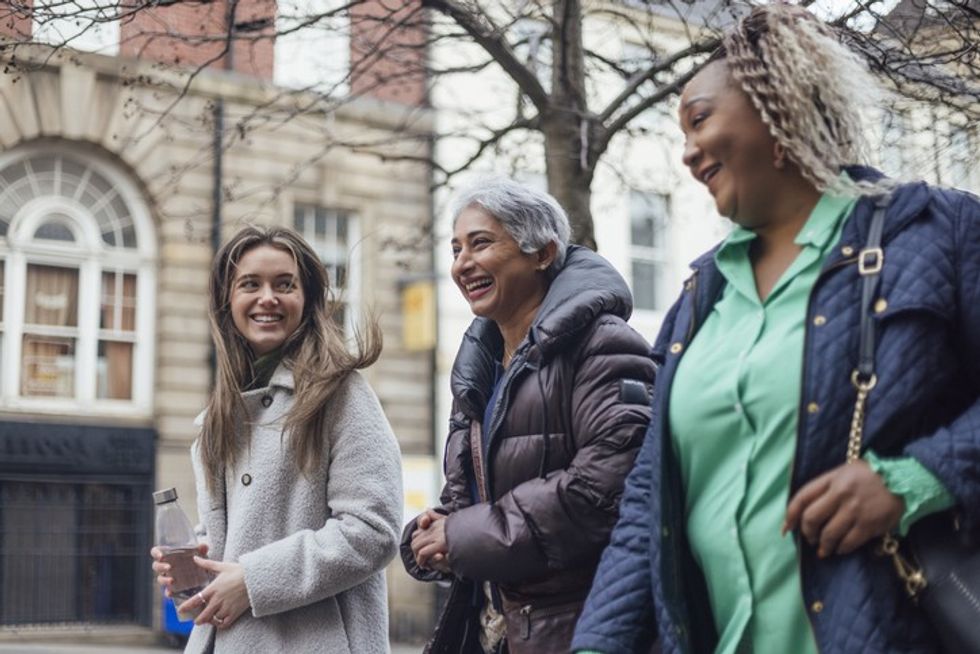by LAUREN CODLING
GAMBLING addicts are at higher risk of relapsing during the coronavirus pandemic, experts have warned.
Prime minister Boris Johnson introduced strict lockdown measures to halt the spread of the Covid-19 infection last month. The rules mean that people should stay indoors unless they need to shop for food, exercise or to go to work that cannot be done at home.
However, medical experts have claimed the lockdown could have a detrimental impact on addicts who could turn to online gambling as a distraction.
Professor Dinesh Bhugra, emeritus professor of mental health and cultural diversity at the Institute of Psychiatry, Psychology and Neuroscience, King’s College London, said gambling addiction was likely to become more “problematic” if an individual was under self-isolation or locked down.
“Individuals need excitement and endless repeats of various TV programmes will not provide that, whereas gambling online may well do just that,” Professor Bhugra told Eastern Eye.
Matthew Gaskell, consultant psychologist and clinical lead for NHS Northern Gambling Service, agreed that the risk of relapse was high.
“Common relapse precipitants are boredom, having time on your hands, stress, social isolation, access to funds, financial insecurity, interpersonal conflict, and having easy access to gambling,” he told
Eastern Eye. “In other words, we have the perfect conditions for relapse.”
Previous NHS estimates revealed that more than 400,000 people in England have an addiction to gambling. In England and Wales, gambling participation was highest among white adults at 59 per cent, compared with 46 per cent of black adults and 32 per cent of Asians, according to a study by NatCen Social Research in 2016.
Psychological therapist Stefan Walters warned of the financial impact that online gambling could have. As people worry about the future of their income, Walters said some addicts may believe gambling could help them financially.
“However, we know the system works against the addict,” he told Eastern Eye. “There can be ... the belief that maybe gambling will get them out of it.”
Walters, who is a member of the British Association for Counselling and Psychotherapy, also noted the change of routine in spending could have a “dangerous impact” on addicts.
“Usually, we may have spent our money on our commute or our morning coffee, but now we don’t have that, and people may think they can spend that money on online gambling instead,” he said. “For an addict, that can be a huge temptation. It is a really high risk factor.”
Last month, the UK Gambling Commission (UKGC) told its online licensees to “protect consumers” during the crisis and “act responsibly, especially in regards to individual customer affordability and increased
social responsibility interactions”.
Gaskell said he was concerned by “aggressive” marketing and promotions to gamble online by the gambling industry. He has called for a ban on all TV and online gambling advertising and promotions during the Covid-19 crisis.
“It is highly irresponsible and likely to lead to a great deal of harm,” he said.
A number of cross-party MPs have also advised gambling firms to impose a betting cap of £50 a day during the crisis. In an open letter to the Betting & Gaming Council, MPs expressed “deep concern” people would turn to online gambling as a distraction while under lockdown.
“If the industry were to self-impose a daily limit of £50 … it would be a clear demonstration that the industry is willing to act responsibly and do what they can to protect society and peoples’ finances, at this dreadful time,” the letter said.
However, Bhugra believed a £50 daily limit was too high. “Imagine being cooped up in the house, even for two weeks, that is £700,” he said. “Especially when there is uncertainty about employment – this needs to be reduced to perhaps £20 per day.
“When daily life is not structured and individuals are at home getting bored, they may seek excitement. Online gambling and lures of ads can push people over the edge.”
Walters noted that addicts would also not have access to the resources and support that were usually available to them during the lockdown.
A lack of routine or access to face-to-face meetings could jeopardise their sense of stability and mental health, he said. “Suddenly all of that has been thrown into chaos,” Walters, who has worked at an addiction agency for BAME communities in northwest London, said. “There are all of these emotions coming to the surface and it is a perfect storm – all this stuff happening when we don’t have our usual resources available to us.”
According to Gamblers Anonymous, all face-to-face meetings have ceased with immediate effect. However, the support group said digital resources were still available and those in need should consider using the chat room or online group meetings instead.
The Department for Digital, Culture, Media and Sport did not respond to a request for a comment.















 Penguins inhabit a wide range of environments across the Southern HemisphereiStock
Penguins inhabit a wide range of environments across the Southern HemisphereiStock Penguins have evolved to use their flippers to propel themselves through the water iStock
Penguins have evolved to use their flippers to propel themselves through the water iStock Penguins have developed remarkable adaptations to survive the extreme coldiStock
Penguins have developed remarkable adaptations to survive the extreme coldiStock One of the most striking aspects of penguin behaviouriStock
One of the most striking aspects of penguin behaviouriStock Early penguins were quite different from the flightless birds we see todayiStock
Early penguins were quite different from the flightless birds we see todayiStock

 There’s deep healing in the communityiStock
There’s deep healing in the communityiStock
